A long way from home
How months of fighting in Sudan has forced millions of people to flee.
6 September 2023
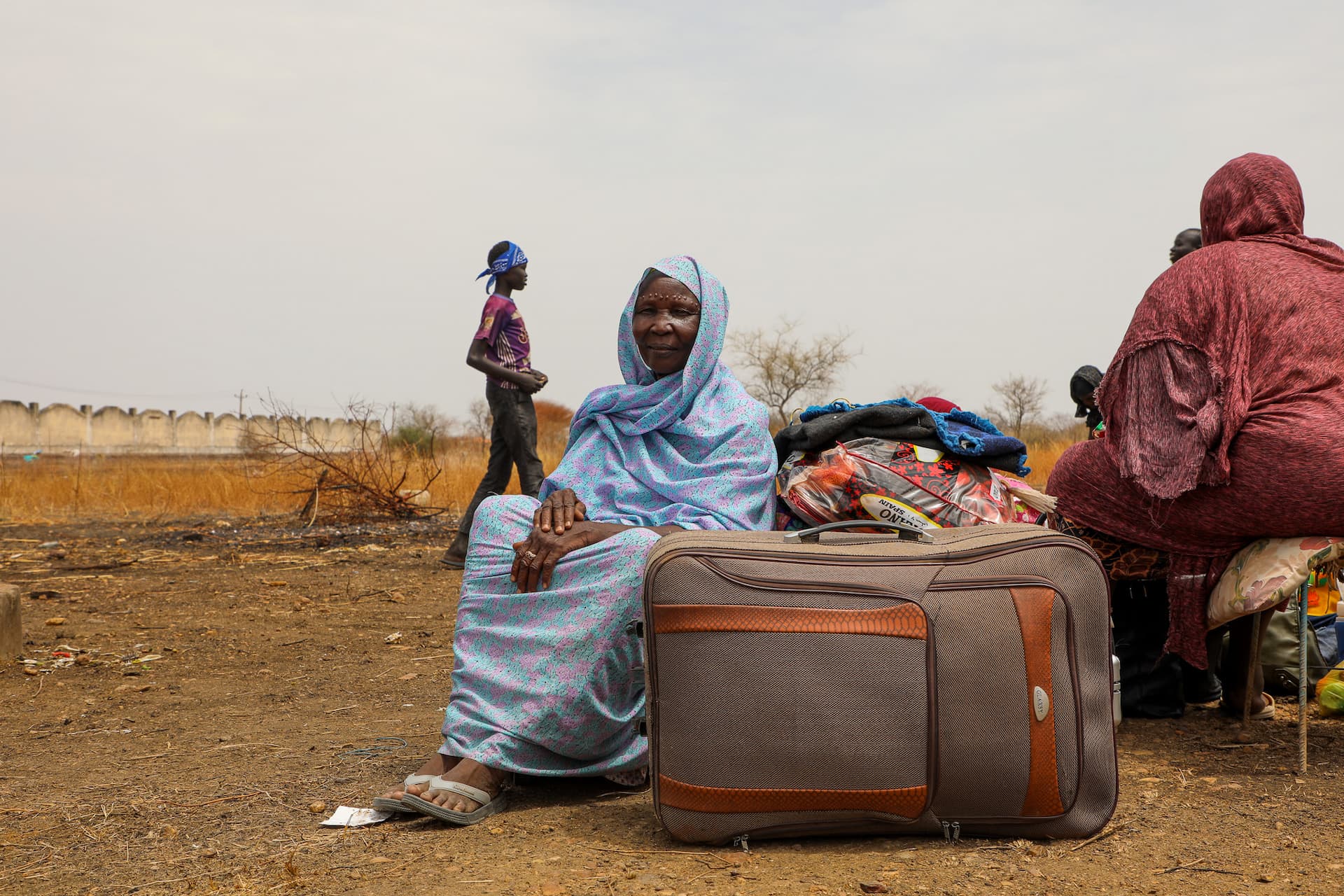
Since deadly conflict and violence broke out in Sudan in April, millions of people have been forced to flee in search of safety and humanitarian assistance.
In just five months of fighting, more than five million people have now been forcibly displaced. Of these, 4.3 million people are displaced within the country, including 4.1 million internally displaced Sudanese, and 187,000 refugees hosted by Sudan who have self-relocated from areas most affected by the conflict.
In addition, more than 1 million people have arrived in the Central African Republic, Chad, Egypt, Ethiopia, and South Sudan. Of these five countries, Chad has welcomed the most refugees since the conflict erupted. 75 per cent of all who have fled across borders are refugees and asylum seekers and 25 percent are refugees who had been living in Sudan and now forced to return to their home countries prematurely.
These numbers are staggering.
Without urgent support and, ultimately, an end to the conflict, this grim milestone is expected to be surpassed as more people continue to flee.
The crisis is desperate. Innocent people, including refugees, are sadly caught up in a dire situation. Lives have been lost, livelihoods destroyed, and relying on humanitarian aid to survive is now a reality for millions.
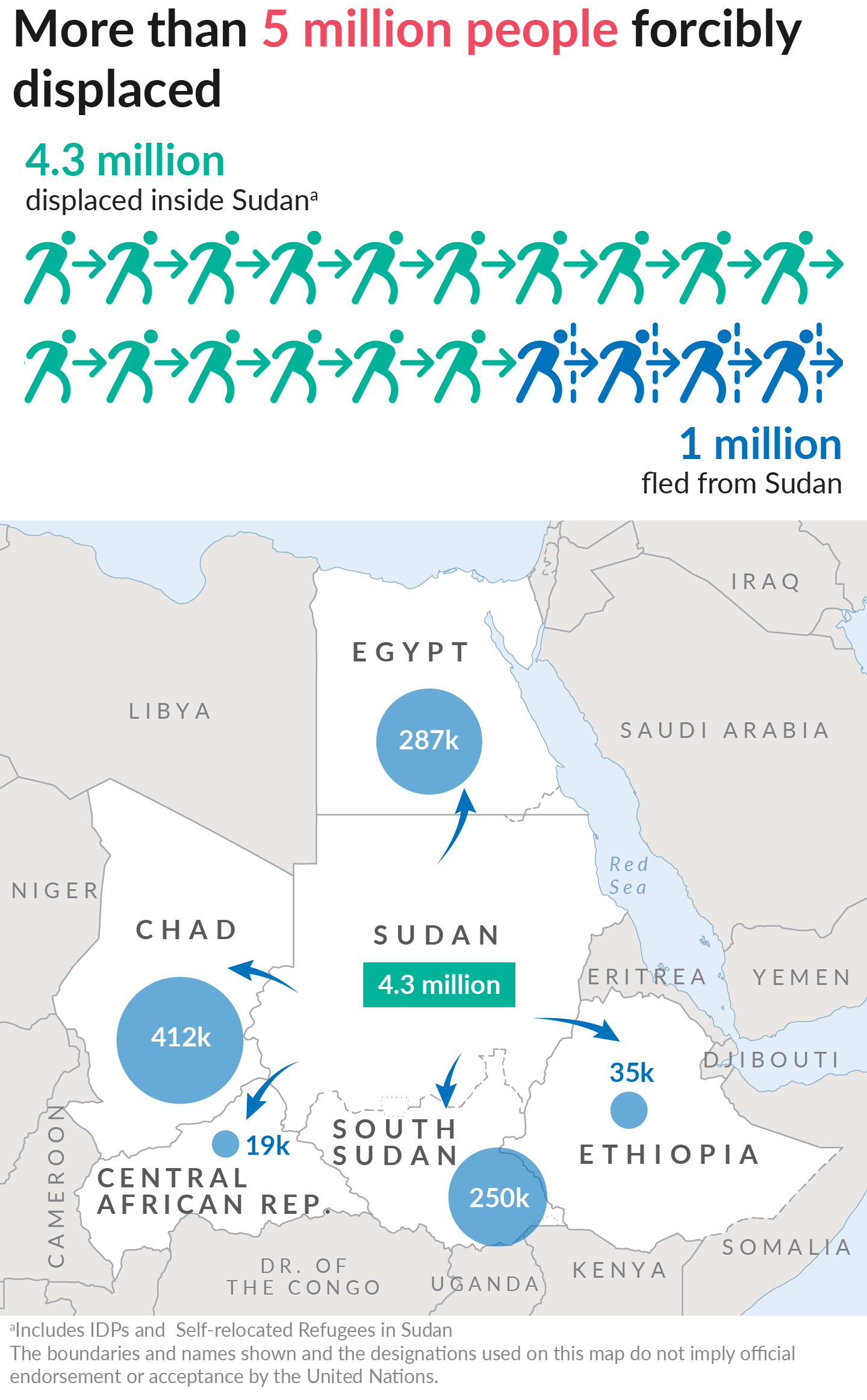
Those who have sought safety beyond Sudan are arriving in dire conditions. Many families have been on the move for weeks with little food, water and medicine, only to find an even worse humanitarian situation in border locations where hundreds of thousands of people have also arrived. These countries were already hosting thousands of displaced people, prior to this crisis.
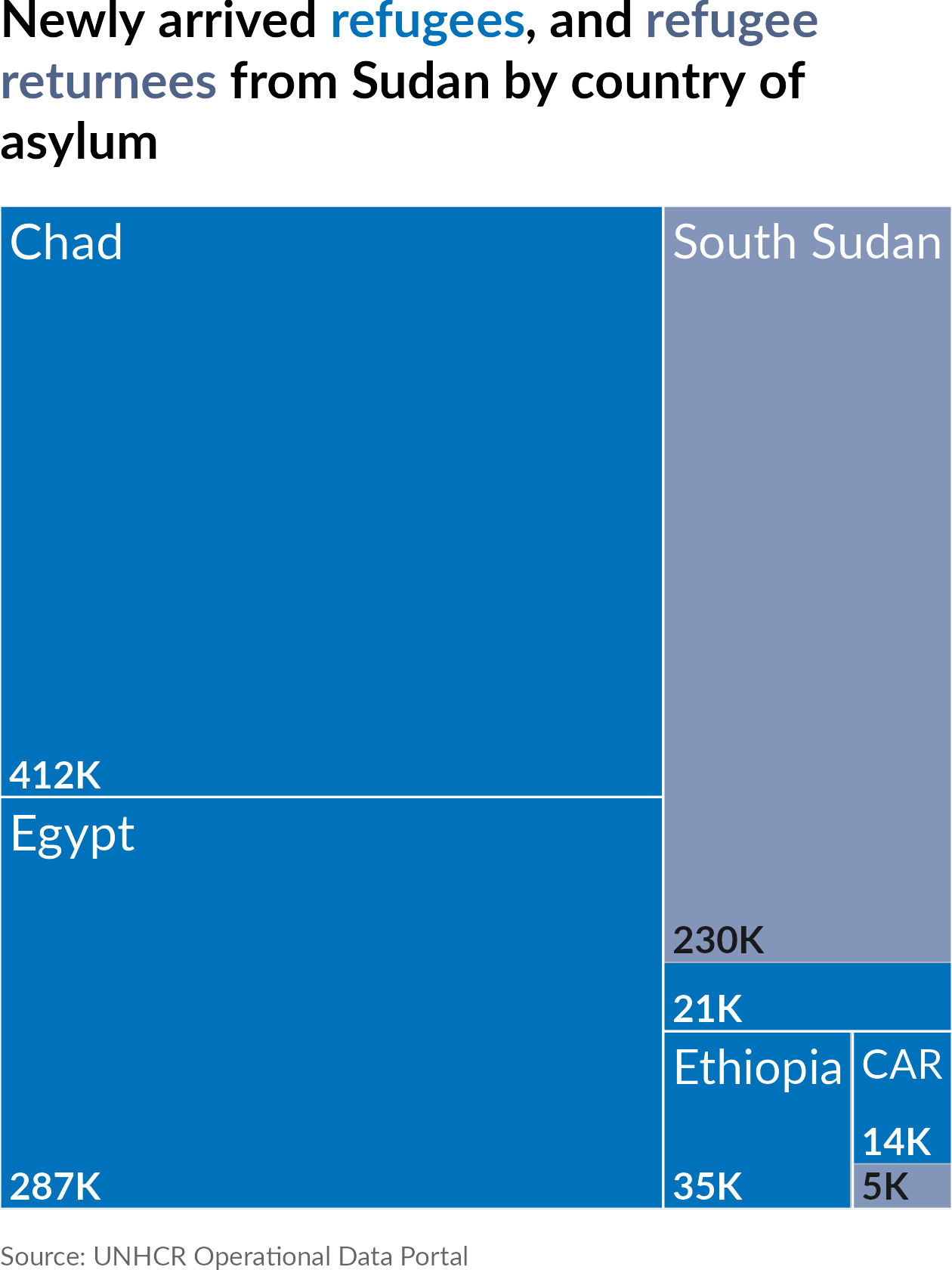
This crisis has also made an already very challenging humanitarian context in the country even more complex. Prior to the crisis, nearly 16 million people in Sudan were in need of aid due to years of conflict and the impacts of climate change through flooding.
In response to this escalating crisis, UNHCR, the UN Refugee Agency, and partners have scaled up efforts to address the needs of displaced populations inside and outside of Sudan. We are working closely with the governments, other UN agencies, humanitarian partners and host communities to ensure the provision of emergency shelter, clean water, health care services, psychosocial support and other vital assistance. Here are the stories of some of the people behind the numbers:
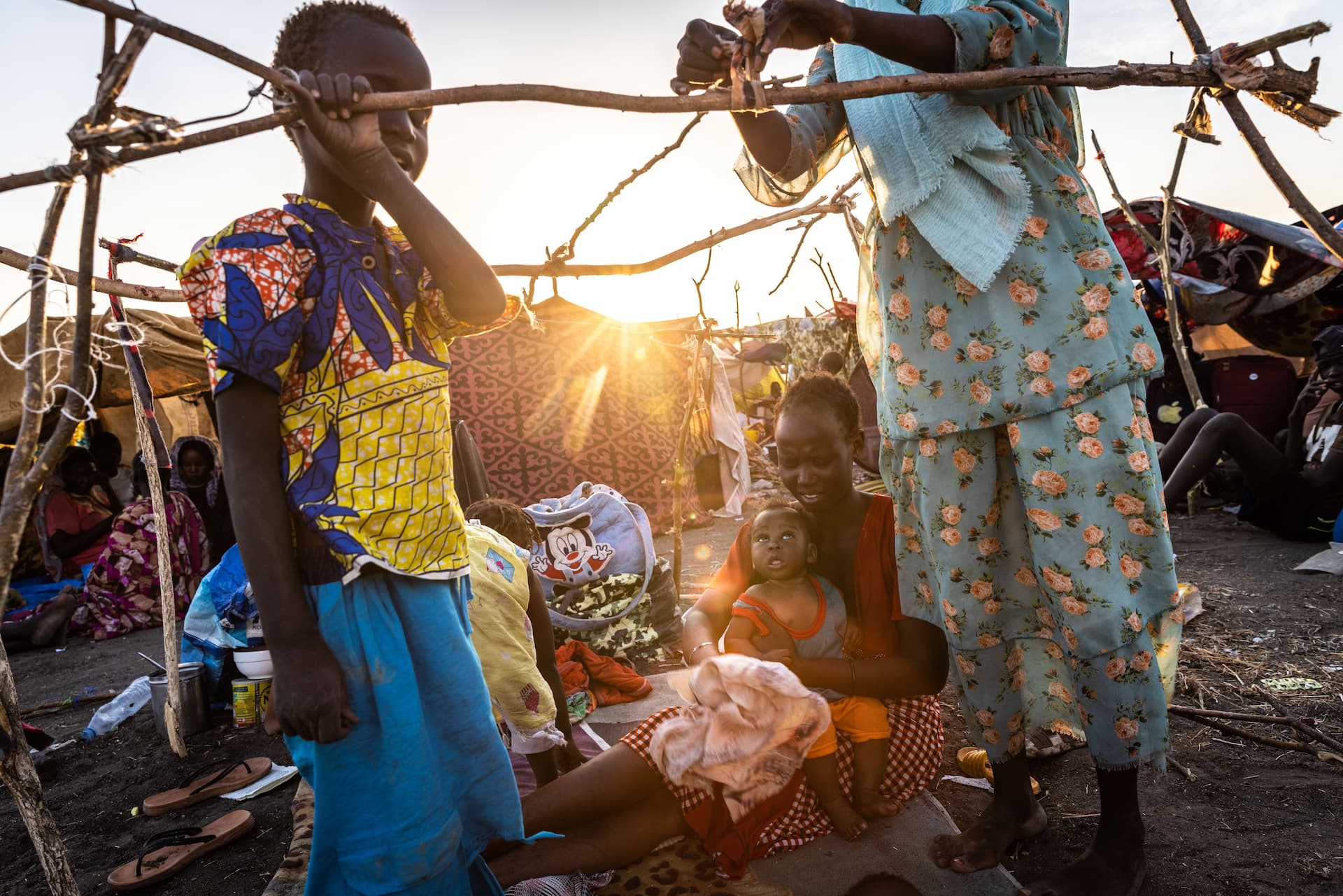
Eliza James, 41, sits with her 4-month-old son Teny, at the UNHCR transit centre near the Joda border point in Renk, South Sudan. With her husband staying in Khartoum, Eliza and her four children spent four days travelling from the city to the border with South Sudan. Two of those days were spent in the bush without food or water, while hiding from fighting on the road ahead. Eliza is from Bentiu and fled to Sudan in 2013 when the civil war began. Eliza says of her situation,
“There was nothing to do but leave [Khartoum], the fighting was everywhere. I packed some bags and ran with my neighbours. We stayed 2 days in the bush and it was so scary, at least here we are safe. There is nothing to do, this is our life as South Sudanese. I am happy to return to Bentiu, it is my home.”
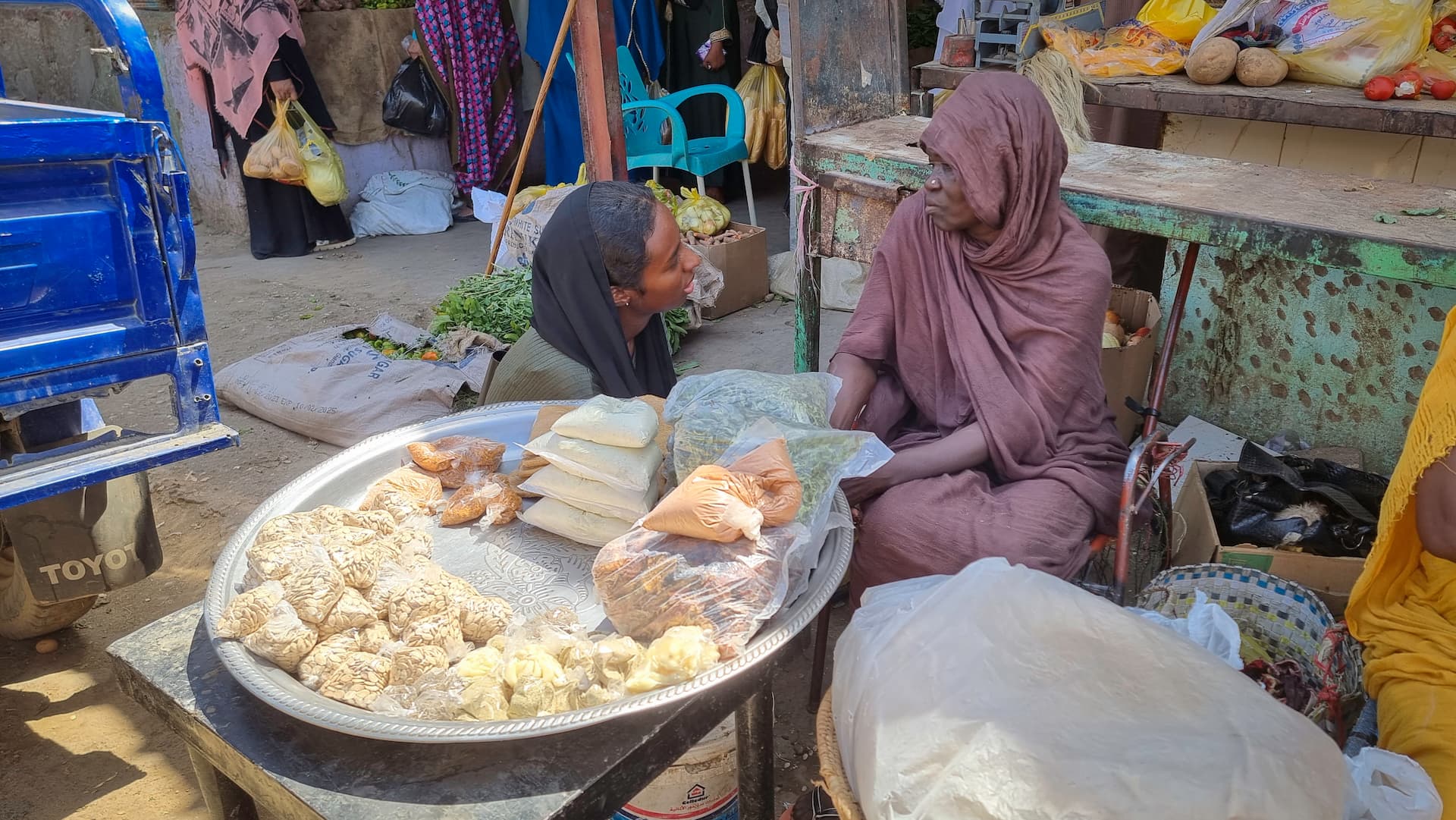
26-year old Razan had been working at a hospital in the capital and planning to begin further studies in medicine at Sudan International University when the violence began unfolding on her doorstep. She and her brother were trapped in their home, relying on dwindling supplies of water, soft drink and some food given to them by neighbours. Finally, after nine days, they left Khartoum with a single suitcase, boarding a southbound bus to the city of Wad Madani for three days and took another 200-kilometre bus trip to the northern city of Wadi Halfa. Despite the situation, Razan decided to volunteer to assist other displaced people. She uses her medical skills to help those living alongside her in the park, many of whom suffer from dehydration and malaria. She also joined other volunteers working with the UNHCR to identify and register newly arrived people and to ensure they receive relief items such as blankets, plastic sheets, jerrycans, and solar lamps.
“Collaborating with UNHCR has given me a purpose; I am no longer [only] a recipient of aid. It has also kept me busy while I was spending days just waiting for a miracle and thinking about my life,” she said.
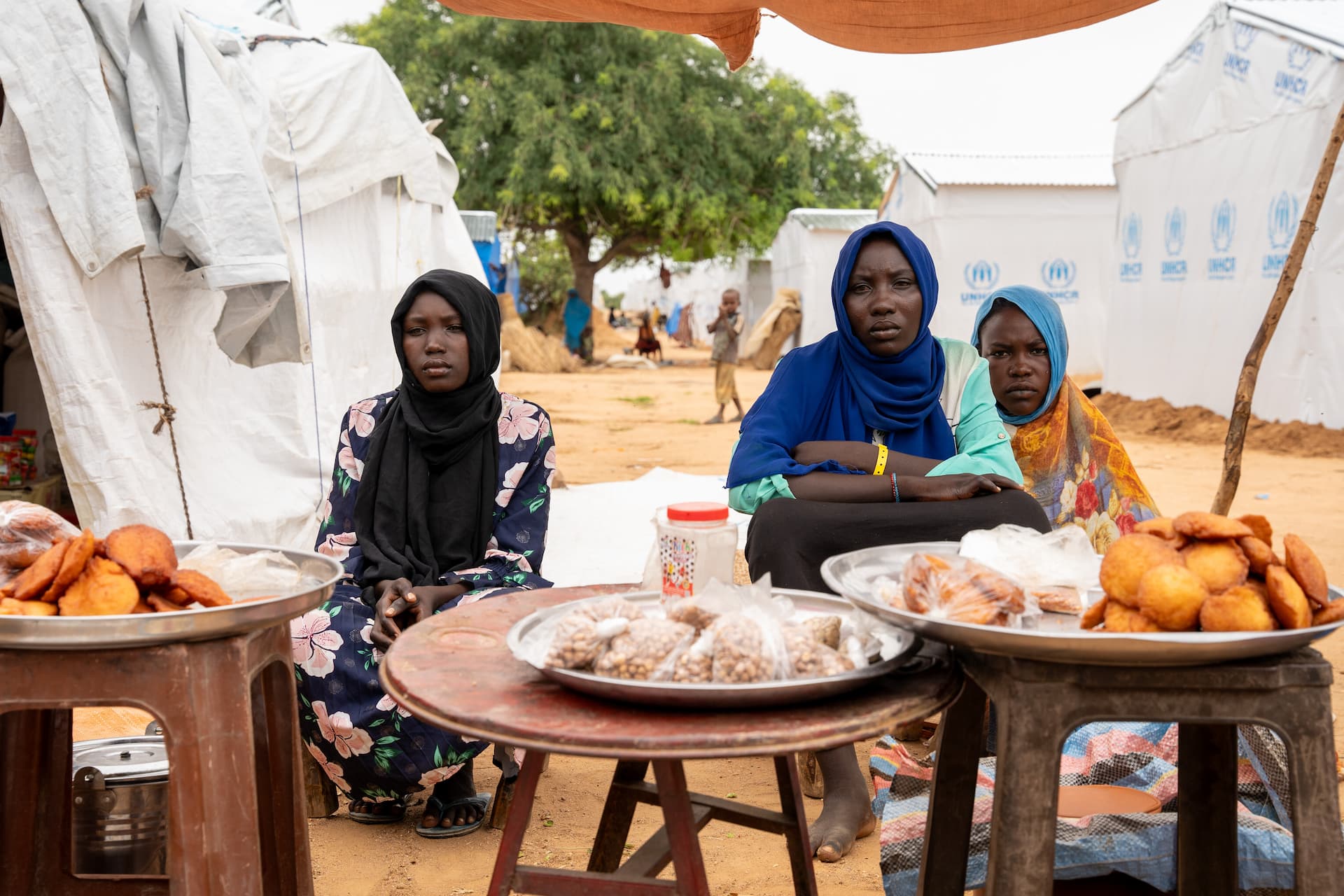
Najua Ismail Abdalla (in the middle) is an 18-year-old refugee from Kanga, Sudan. She is in Arkoum refugee camp in Chad with her mother, but her father is still in Sudan. In her hometown, she used to make and sell bean patties, so she continued her small business after settling in the camp. Her friends are also from Kanga. Samina Ibrahim Sarif (the one wearing a light blue hijab) is 19 years old and has come to the camp with her sister. She is waiting for her parents to be relocated there so that the family can be reunited. The youngest of the group, Islam Juma (the one wearing a black hijab), is 13 years old. In Sudan, she was attending the sixth grade and now she hopes to go back to school.
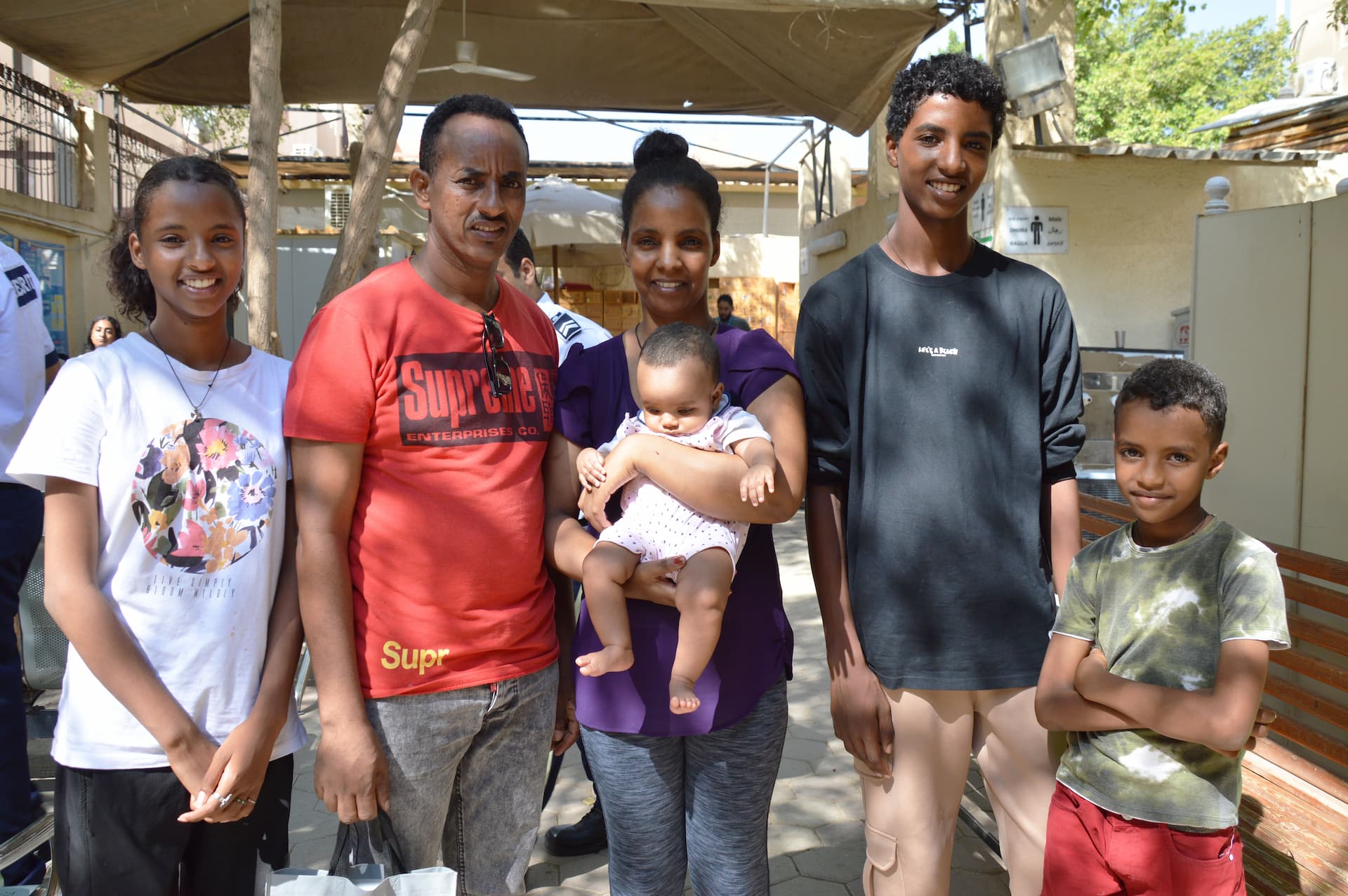
Teklit (43) and his family stand at the UNHCR Egypt Registration Center in Cairo’s outskirts. The family fled violence in Sudan and arrived in Cairo, where they were registered by UNHCR.
The forced displacement of Sudanese and others from Sudan shows no signs of slowing down. With over 1 million forced to cross international borders, it is time for the world to act now and ensure that the vulnerable populations forced to flee their homes are protected and their rights respected.
Sudan Situation Portal